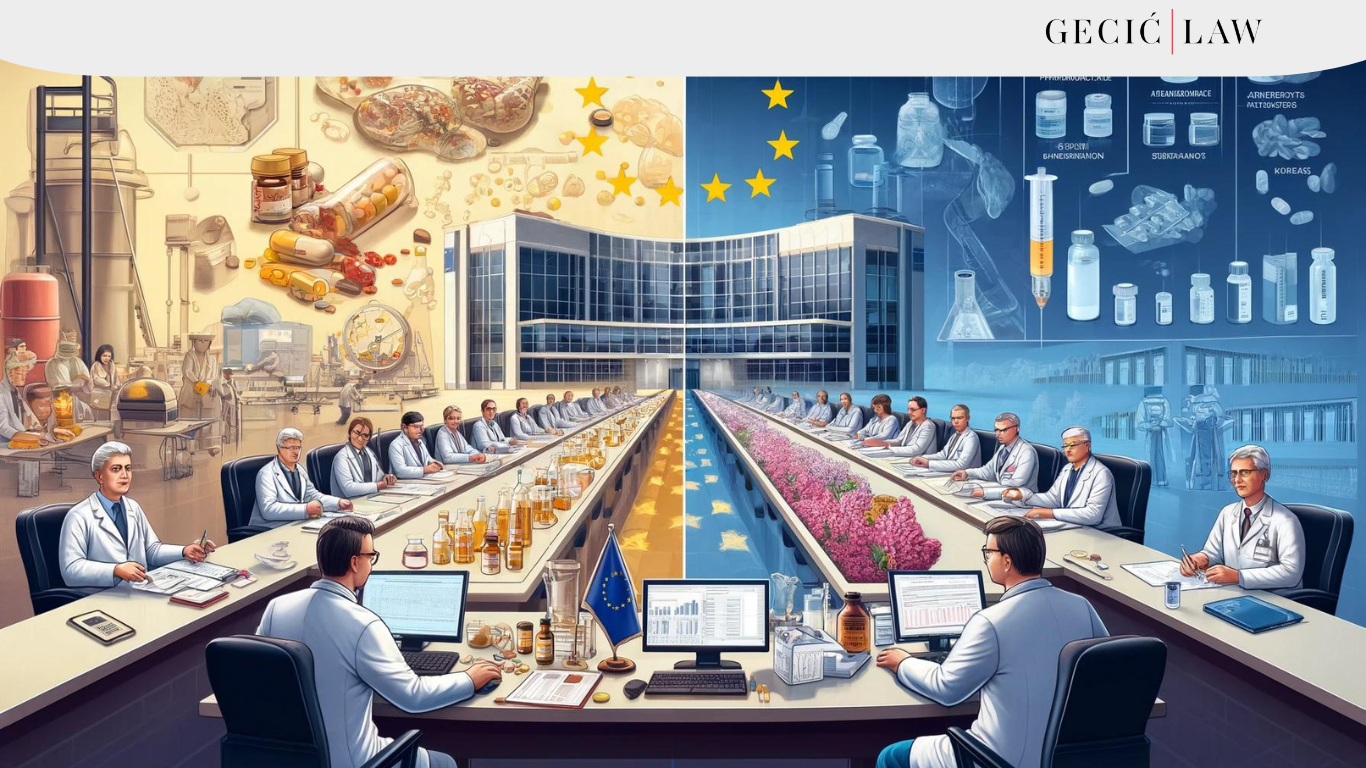

The pharmaceutical industry ranks among the most profitable sectors globally. In 2023, its estimated global value reached USD 1.6 trillion. This industry also plays a crucial societal role, given the importance of medicines and public health. Consequently, it faces strict regulations. This article explores the conditions for marketing medicines in Serbia. It also highlights regulatory similarities between Serbia and the European Union in this area.
To address this question, we first need to define what a medicine is. A medicine is a marketable product characterized by specific strength, pharmaceutical form, and packaging. It contains substances proven to prevent or cure diseases in humans or animals. These substances can also modify physiological functions or assist in medical diagnoses.
A medicine must pass several tests to receive marketing authorization. These include pharmaceutical (pharmaceutical-chemical-biological), pharmacological-toxicological, and clinical tests.
Pharmaceutical companies (sponsors) test medicines following Guidelines of Good Manufacturing Practice, Good Laboratory Practice, and Good Clinical Practice. Veterinary medicines also undergo testing following the Guidelines of Good Clinical Practice for Veterinary Medicines. These guidelines closely resemble the regulations in the European Union.
Several entities can hold a marketing authorization:
The Medicines and Medical Devices Agency of Serbia (“Agency”) must issue marketing authorization before market placement.
Applicants seeking authorization must provide extensive documentation. Marketing authorization can be obtained based on either complete or abridged documentation. The extent of additional documentation largely depends on the type of medicine. For example, if the marketing authorization is for generic medicines (with the same active substance composition and pharmaceutical form as the reference medicines on which it is based), applicants submit abbreviated documentation. The procedure for obtaining marketing authorization for a medicine that already has such authorization through the centralized procedure in EU member states (from the European Medicines Agency) is conducted under special conditions and through an expedited process. In other cases, complete documentation is submitted. Applicants must also submit medicine samples.
A complete marketing authorization request includes:
Along with the request for marketing authorization or a request for issuing a certificate of pharmaceutical product, the applicant must submit a certificate of compliance with the Guidelines of Good Manufacturing Practice, or an equivalent from the EU. The testing laboratory must provide a Good Laboratory Practice certificate to the applicant with the test results.
During this process, the Agency may request other data relevant to the application.
In the case of an application for generic medicines, instead of pharmacological-toxicological data and clinical data, it is necessary to provide only data on the bioequivalence with the reference medicine. Bioequivalence determines that the biological availability of two medicines that are pharmaceutical equivalents (pharmaceutical alternatives), administered in the same concentration (dose), show such a degree of similarity that their effect in terms of efficacy and safety is essentially the same.
The Аgency decides on applications within 210 days from the receipt of the complete application. In the case of a marketing authorization based on the centralized procedure in the EU, the Agency must decide within 150 days.
The Agency conducts quality control in accordance with European, national or other recognized pharmacopoeias. To conduct quality control, the Agency may conduct laboratory testing of the medicine or examine documentation issued by the manufacturer or a quality control body for medicines in a European Union country or another country that has the same or similar requirements for granting marketing authorization.
Marketing authorizations are valid for a period of five years, both in Serbia and the EU. After the five-year period expires, the holder must apply for renewal based on a reassessment of the risk-benefit ratio. The holder must submit a renewal application to the Agency and provide documentation with expert reports on the quality, safety, and efficacy of the medicine. The applicant must also include a list of all product variations. If the Agency determines that the medicine is safe, it may grant an unlimited-term authorization.
During the process of granting marketing authorization, the Agency may restrict some medicines to prescription-only if:
Prescription medicines cannot be sold or dispensed without a prescription. The Government of the Republic of Serbia sets criteria for pricing these medicines. It also establishes maximum prices for medicines granted marketing authorization and used in human medicine under the prescription dispensing regime.
In the European Union, one can choose between the centralized procedure or the national procedure. Through the centralized procedure, the European Medicines Agency grants marketing authorization. This allows the holder to market the medicine across the European Union with a single authorization.
First, pharmaceutical companies submit a single application for marketing authorization to the European Medicines Agency. The competent committees of the European Medicines Agency conduct a scientific assessment of the application for a single marketing authorization and provide a recommendation on whether the medicine should be placed on the market or not.
According to the regulations of the European Union, the European Medicines Agency does not have the authority to authorize the marketing of a medicine in different EU countries. This is the role of the European Commission, as the body responsible for granting marketing authorizations through the centralized procedure. The European Commission makes legally binding decisions based on recommendations from the European Medicines Agency. It does so within 67 days of receiving the recommendation from the European Medicines Agency.
Once the European Commission grants the marketing authorization, applies throughout the European Union and the European Economic Area (EEA) – Iceland, Liechtenstein, and Norway. This authorization also facilitates obtaining marketing authorization in Serbia.